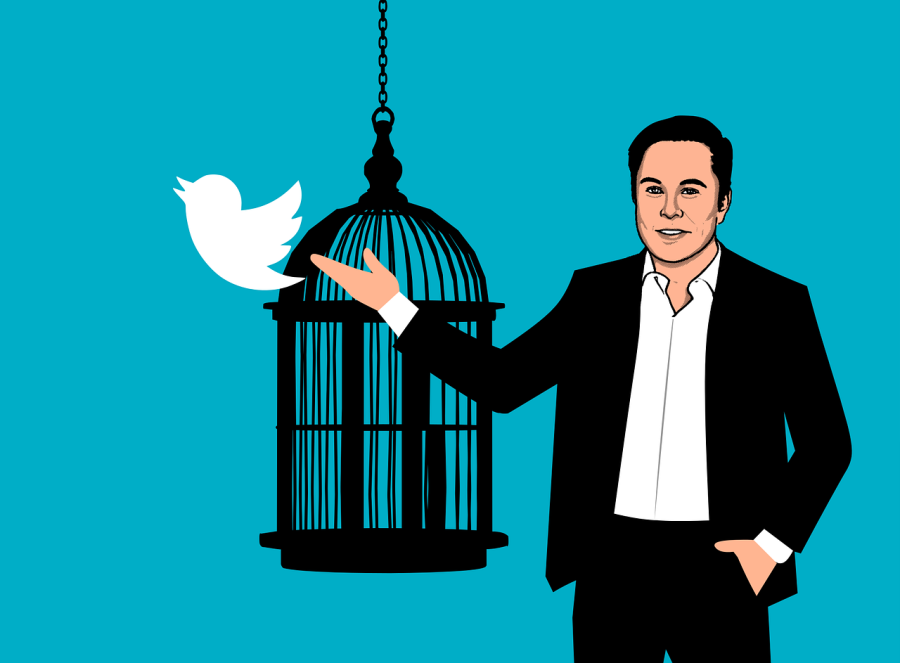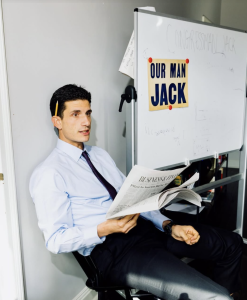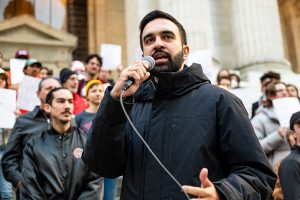Tracking Twitter’s mishandling of media accounts amid ongoing verification changes
May 1, 2023
Several media outlets departed from Twitter after highly publicized feuds with the company’s owner and CEO Elon Musk, starting with NPR on April 12.
Musk, the billionaire who famously acquired Twitter in October 2022, began to express his disapproval of the news company, even tweeting “Defund @NPR.”
The contentions can be traced back to the “state-affiliated media” label Twitter pinned to NPR ’s Twitter account. The badge appeared on all NPR posts, as well as on its profile page, on April 11.
Twitter’s use guidelines page originally stated that the labels on state-officiated accounts “provide additional context about accounts that are controlled by certain official representatives of governments, state-affiliated media entities and individuals associated with those entities.”
But by April 21, the updated guidelines page revealed the company opted to recognize outlets with editorial independence.
“State-financed media organizations with editorial independence, like the BBC in the U.K. or NPR in the U.S. for example, are not defined as state-affiliated media for the purposes of this policy,” it said.
The moniker had been previously used by the platform to identify outlets that directly voiced centralized perspectives of their respective governments, such as Russia’s RT and China’s Xinhua.
RT is funded by Russia’s Federal Agency for Press and Mass Media, while the latter has served as the propaganda arm of the Chinese Communist Party for decades. The current president of Xinhua, Fu Hua, said in September 2022 that “Xinhua will never depart from the party line, not even for a minute, nor stray from the path laid down by General Secretary Xi Jinping.”
NPR, meanwhile, has no known affiliation with actors representing the U.S. government. The organization receives funding from corporate sponsorships as well as a slew of member stations, predominantly run by nonprofits, that pay dues.
The BBC , the Canadian Broadcast Corporation and the Public Broadcasting Service all later received the “government funded media” label as well. Meanwhile, Musk tweeted on March 19 that Twitter will respond to press inquiries with a poop emoji.
PBS left the platform a day after NPR, followed by the CBC on April 17.
NPR’s Chief Operating Officer Will Lee explained NPR’s decision to permanently remove its presence of more than 50 corporate accounts from the platform.
“When Twitter decided to call us state-affiliated, and then changed it to government funded, that questions our independence — and that is unacceptable to us,” Lee said on CNBC’s Last Call with Brian Sullivan on April 12.
“It’s simply factually untrue,” he said. “And if we were to continue to propagate posting on the platform it would just be a falsehood every single time we posted.”
Soon after the BBC received the label, reporter James Clayton requested what he and the BBC referred to as a “hastily arranged” live interview with Musk on Twitter Spaces.
To the chagrin of numerous journalists and the enjoyment of Musk’s supporters, one moment in particular defined the interview.
Clayton claimed that there had been a rise in hate-speech and slurs on the platform. When Musk asked for an example, Clayton didn’t have an answer.
“You just lied,” Musk replied.
Twitter’s owner used the moment as a stepladder for his elevated criticism of the media.
“The BBC interview last week was exceptional in illustrating why you cannot rely on the media for truth,” he tweeted on April 15.
By April 25, no media account on the platform displayed the “state-affiliated” or the “government funded media” label — including RT and Xinhua.
Though the accounts of the recently departed media companies never deactivated throughout the disputes, it’s unclear whether they plan to stay on the platform or not.
As of writing, it is also unknown whether the move to revoke the label from every media account was intentional or accidental.
Incidentally, journalists have pointed out the right-leaning trajectory of Musk’s views in the past few months, embodied through his reaffirming replies to conservative pundits.
Other journalists have commented on Musk’s troubles since his acquisition of the platform.
“He doesn’t know what he’s talking about,” Nilay Patel, editor-in-chief of The Verge, said on April 12.
Patel claimed that Musk lashing out against the media was tethered to his frustrations with government regulations that have been harder for Twitter to comply with since the regime change.
“If you look at Twitter before Elon … [all] these huge social platforms developed really robust, really strong systems of interacting with and pushing back on governments around the world when they needed to,” Patel said. “Twitter has decimated that function, and now operates at the whim of one man who has not done the reading.”








